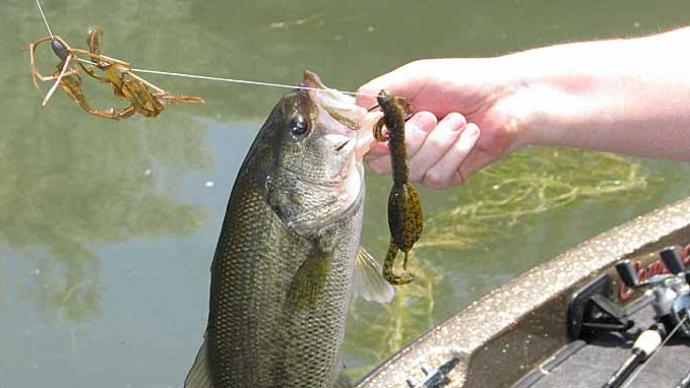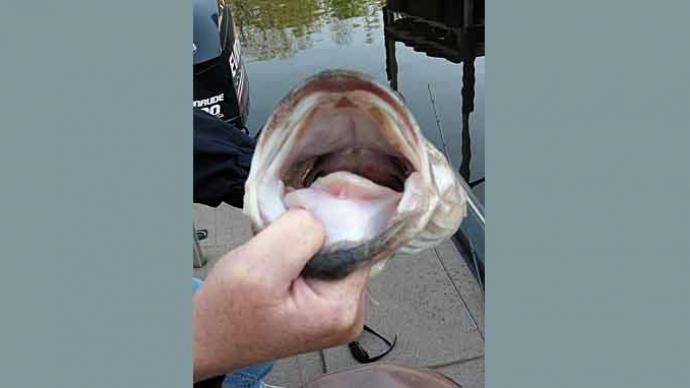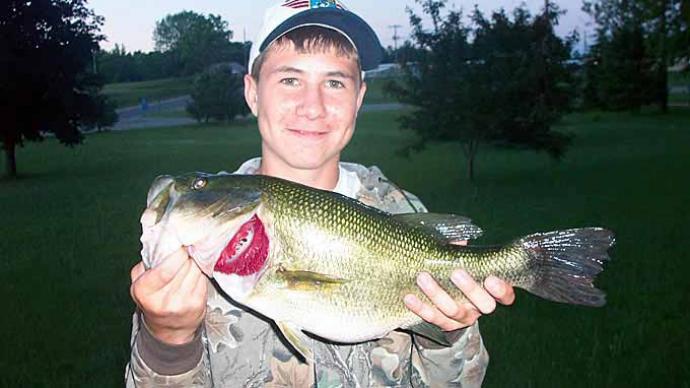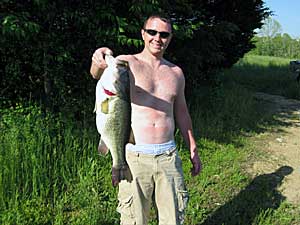
By the time the month of July gets here, bass fishing has gone through a few changes. The spawn is done, and we have made it through the post-spawn blues, followed by the short pre-summer pattern. By the time the month of July hits the calendar pages, a bass fisherman will be faced with one of the longest calendar periods that bass will face all year: the summer pattern. Except for the winter calendar period which bass in our part of the country aren't chased or very rarely caught, the summer period will keep bass in the exact locations and pattern for the next few months.
The summer period will generally hit the last week of June or the first week of July as a rule of thumb. This will have a lot to do with what Mother Nature has in store for us. It could be earlier or later. During this time frame, pre-summer- to summer-period, bass will make one of two distinct movements. Some of the bass population will head towards the protection of the shallow slop and bury up for the summer months, or they will head towards the cooler deepwater haunts.
It has been said many times that deepwater is the home of the big fish, and during the summertime, this can't be a more accurate statement if you're looking for big bass. Bass will make movements towards rocky sections of the lakes located in depths that range from 8ft to 25ft or deeper in some cases. The main factor that has to be present for the bass to take up residence in these deepwater haunts has to be a food source. The leading food bass will be eating during this period is bluegills with a few crawfish thrown in here or there.
To find these areas, you'll need a good depthfinder. I use a Humminbird 987. With the depth scale adjusted to see double the depth of the bottom. When I see the double echo on the screen, I know I'm on the rocks. Once I find the rocky area that I'm looking for, I'll flip my transducer switch and run the structure a few times with the side imaging capability of the 987 to see what the rock structure looks like. With the side imaging of the 987, I can look for and see boulder areas that stand out and will attract the bigger bass of the school or the structure. These are the areas that I'll target first.
Crankbaits will get the first crack at these rock structure summer bass. I have found Rapala DT 16's to be one of the best crankbait to use for this pattern. The DT will reach a depth of 15ft to 16ft on 10lb test line on a regular cast. Simply put, making contact with the structure is key to generating strikes; if you're not making contact with the rocks, you won't be getting strikes. With the crankbait, you'll take the aggressive, active bass and the feeders in the school.
For the non-aggressive bass, I'll follow up my crankbait presentation with a slower bottom presentation like a football jig tipped with either a spider grub or a tube bait. Outkast's Tackle Touchdown Jig is perfect for this presentation. I prefer a heavier jig, so I'll fish the ¾-ounce model. This size gives me a constant feeling of the bottom makeup and whether I'm fishing in the right areas. If you're not feeling rocks with this pattern, you won't get bites. When it comes to tipping the jig, you have a few options. My number one choice is a spider grub; my second choice would be an Outkast 4-inch Pigg followed by a tube.
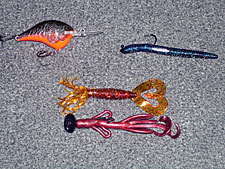
I fish this presentation on a 7-foot or 7½-foot flipping stick spooled with 20-pound P-Line Fluorocarbon line. Make your cast and let the bait sink to the bottom. You want to drag the bait instead of hopping it like a traditional jig when it comes to a retrieve. When you come to a rock, try to rock the jig back and forth a few times before you lift the jig over rock or structure you're fishing before you get back to dragging the jig. This retrieve tactic alone will get bites when the bite is tough or when it seems nothing else will work.
The last rock presentation to keep in your arsenal is a jig and worm or grub presentation. Try this finesse presentation before moving on to your next spot when all else fails. I have had days when this is the only presentation that the bass will bite. I think as the summer goes on, bass see a bunch of crankbaits go over their heads and see a fair amount of jigs in their areas. But there is something about a Money Jig and a 4-inch worm or a grub that a big old rock bass can't pass up. 1/8-ounce and 3/16-ounce Money Jigs are the two sizes that I keep stocked, and I carry a variety of 4-inch ringworms and grubs to tip these jigs. Suppose the bite is tough. Try to tip the money jig with a tube or a spider grub and drag the jig on the bottom to give them a different look. This combo many times has saved the day and caught the biggest bass along the way.
So when you get to July, it's time to leave the shore and head towards the deeper water rock haunts. Remember to adjust your depthfinder to see the double echo that the rocks will create. A food source is a big key. Look for signs of bluegills in the area. Cover the area with a crankbait and follow that up with a Touchdown Jig and Money Jig presentations. I bet you, too, will soon be singing the praises of deepwater rock bass.


